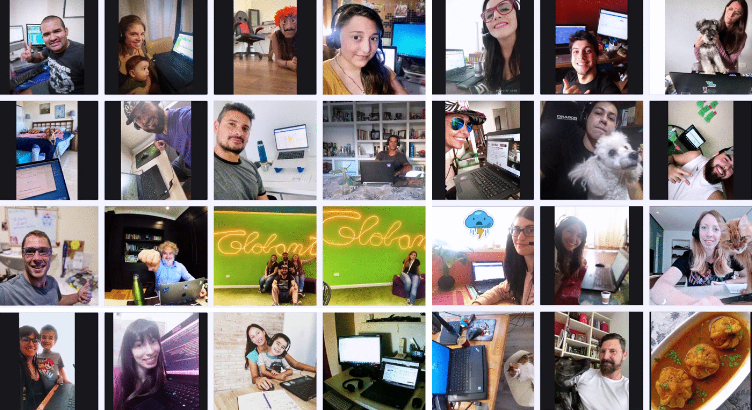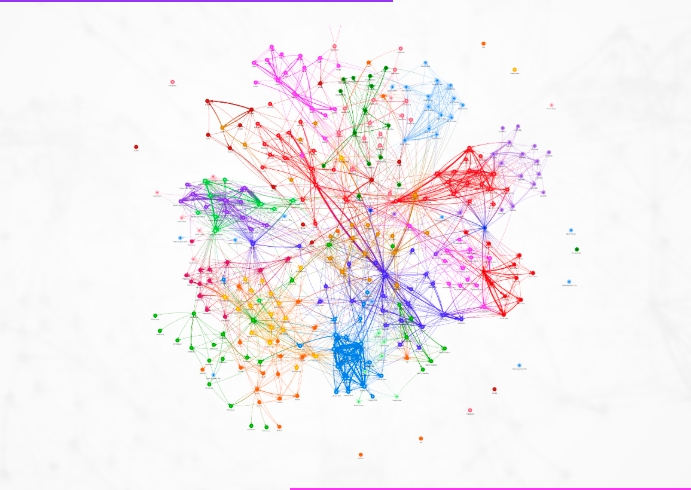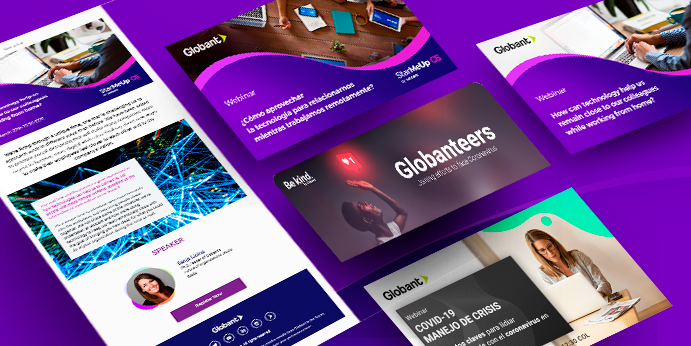Coronavirus and cultural transformation: the future of work is now
Written by: Guibert Englebienne
Over the last few weeks, many companies throughout the world have implemented remote work strategies to contribute to the social isolation necessary to prevent the spread of the coronavirus (COVID-19) and preserve the health and well-being of employees and their families.
Without much time to plan for a transition, as companies are implementing remote work scenarios, their adaptability is being tested, not only at the technological level but also in terms of work dynamics and virtual relationships.
What are the biggest risks of telework for employees? They feel disconnected when they lose the personal interaction that the physical workplace provides and they lose their focus on their work, which ends up impacting their performance and results.
The COVID-19 crisis is forcing organizations to intensify their efforts and be creative to care for and motivate their employees. In this new scenario, leaders are asking how they can help employees stay confident, feel recognized, and emotionally connect with their colleagues and teams.
Time to accelerate digital transformation
Today the urgent need to implement remote work is fueling the gap between digitally native companies- those that had already begun their digital transformation and those that, for the first time, have implemented remote working strategies in the face of the urgent demand to give continuity to projects and remain productive even though their offices are empty.
In this race to reinvent the workplace and adapt to the new ways of working there is a lot being said about the technologies that companies need to organize all their employees under a remote work modality. In recent weeks the demand for virtual platforms to hold group meetings, team monitoring programs, information apps and collaborative work tools such as Slack, Google Hangouts, ZOOM, Microsoft Teams has exploded.
However, while these technologies are key to ensuring organizations can adapt to survive, they won’t replace the essential fuel that makes a person strive, collaborate with team members, commit to achieving goals, and want to bring their very best to the job: the emotional connection.

Digital transformation is, first and foremost, cultural. Globant, for example, was founded with a 100% digital culture from the start. While we have implemented technologies focused on strengthening organizational culture at a distance for years, in recent weeks, we put those efforts into hyperdrive, deploying a high-impact global strategy to maintain contact with our employees worldwide to help them transition to a remote work modality.
Cultural platform: making distances merely physical
The question of how to use technology to help connect employees is not new to Globant.
Years ago we understood that a strong culture is essential for people to be passionate about the vision of the organization. We knew that recognition makes them feel motivated, committed to the company and increases their productivity. To enhance our organizational culture and maintain the integration of people and work teams that operate from different parts of the world, we created StarMeUp OS, a platform that allows employees to recognize the behaviors associated with the company’s values. Thanks to artificial intelligence, these interactions are measured and help generate crucial insights on group dynamics.

In recent days, employees around the world have found themselves faced with an urgent need to change their work routines,which for many included starting to work remotely. The new reality makes us pause as leaders to ask ourselves how to provide stability and confidence at this juncture. How can we make sure that employees feel safe, united and committed to work?
Today more than ever, the challenge for organizations is to understand how teams are feeling and working. It is important to monitor these dynamics during the pandemic and as employers make sure we continue to provide the best work environment and create the best possible culture for our people. Studies show that the stronger the ties between people, the more likely they are to commit to their organization and the results of their work.
To help organizations in the times of COVID-19, we are sharing some of Globant’s initiatives to ensure we continue to create the best possible culture and keep our employees connected and motivated.
It is important to note that these actions were monitored using StarMeUp analytics. They show the real impact they produced on the connection between Globant’s employees. At the same time, the data allowed us to adapt our strategy to achieve better results and to provide employees with the support they need.
Five ways to continue building culture regardless of physical distance
How to use technology to make employees feel connected and motivated when working remotely?
1- Lean on your values to tackle changes
At the end of 2019, Globant launched its initiative BeKind inviting employees to transform organizations and people’s lives through actions that safeguard their colleagues, the planet and humanity.
To contribute to social isolation, we asked our employees to work from home, but also to be responsible, tolerant and empathetic in every way possible. The BeKind concept has become more relevant and urgent than ever before, which is why the company decided to add it as a fundamental value of its culture.
2- Leverage your social networks
Globant uses BeThere, an application where people share photos of important moments in the organization, helping everyone to feel like they are part of the company, no matter where they are.
We organized a viral campaign on BeThere to encourage employees to share images of their remote work experiences with their colleagues. Some of the hashtags that went viral quickly were: #takingcare #WFH #StayConnected! #BeKind #StayHome.
Help nurture the positive bonds/ties between your people for more united, motivated and happy teams.
3- Communicate, communicate, communicate!
Globant has been in contact with its communities more than ever in recent weeks: the company organized prevention webinars, published guidelines and measures, and launched a website with practical tips and resources.
In times of uncertainty, people want to be informed. Develop strategic awareness campaigns so that your employees, customers, and suppliers have all the necessary information, providing them with a strong sense of security and protection at all times.

4- Encourage active breaks and offer mindfulness sessions
Short breaks at work have been shown to revive creativity and energy, even more so if that break involves physical exercise and breathing techniques.
When working remotely, the balance between working hours and breaks to relax can be difficult to manage. To help employees reduce work fatigue, we proposed that they participate in online exercise routines called “Active Break” and mindfulness sessions. Give your employees options to keep them connected to the organization and to let them know that you care about them.
5- Use analytics to understand your employees
Thanks to artificial intelligence, it is possible to measure group dynamics and understand how teams are collaborating and interacting remotely.
For Globant, remote work represented an opportunity to put to the test the powerful analytics of its digital culture platform. The platform allows leaders to see how any individual is connecting to their colleagues during the crisis, and identify if a person is feeling isolated or emotionally distanced from the organization.
If you’ve never used analytics to make decisions about team leadership, there has never been a better time to start.
Harnessing the crisis for momentum to transform
Widespread remote work initiatives have exposed at what stage most organizations’ digital transformation processes are at. Companies that incorporate artificial intelligence and data into their cultural strategy are better prepared to face changes and provide the stability and emotional well-being that employees need.
The pandemic has already transformed the world of work. The way we understand work is evolving more quickly than ever before and we’re seeing more and more that. technology is essential to building organizations based on emotional connections and cooperation, which will help build a better society.
